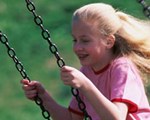 Go to main content
Go to main content
Archive Website of the UK government
Please note that this website has a UK government accesskeys system.
Main menu
Page menu
Parents

Pupil health and safety

Everyone in the education system must do what is sensible to keep pupils safe and healthy. This includes making the school environment as safe as possible. There are several sets of guidelines setting out the good practice that can help schools meet their responsibilities.
Responsibility for health and safety
Who has ultimate responsibility for pupil health and safety depends on the type of school your child goes to. The local authority draws up a health and safety policy for community and voluntary controlled schools. In foundation and voluntary aided schools, it’s usually the governing body. But in all schools, the staff will deal with day-to-day enforcement of the health and safety policy.
This applies while your child is in the charge of school staff - whether they are on or off the school site, during the school day and outside normal school hours.
Safety at school
Safety in lessons
Schools can add to the health and safety policy to reflect their particular circumstances - so that it covers, for example, what their pupils do in science and P.E lessons.
Schools are also encouraged to use the curriculum to help pupils develop the skills and knowledge to keep themselves safe. You can help by making sure your child understands why it’s important to follow the rules and listen to the teacher.
Safety outside the classroom
Getting out of the classroom from time to time – whether it’s a week away on an educational visit or an hour-long science lesson in the school grounds – is a valuable learning experience. The 'Learning Outside the Classroom Manifesto' was published in 2006 to encourage this type of activity.
Getting out of the classroom can mean pupils and staff facing hazards not present in the classroom - traffic, for example. Risk can never be eliminated entirely, but can be reduced to an acceptable level by good safety management. This enables visits to take place even where potential additional hazards exist.
Adventure activities
School trips based around ‘adventure’ activities involve dealing with obvious, in-built natural hazards. Schools whose staff have the essential skills can organise this type of trip themselves, but many use commercial providers inspected on behalf of the government.
Most commercial providers offering trips for under 18s involving climbing, caving, trekking or non-powered watersports have to be licensed by the Adventure Activities Licensing Authority (AALA).
Organisations with a licence from the ALAA have their safety arrangements inspected regularly. You can get a list of licensed organisations from the ALAA website - follow the link below.
First aid and medical needs
Schools need to be able to cope with emergencies, and local authorities have a responsibility to help pupils take advantage of any medical or dental inspections arranged by the Department of Health.
Most children with medical needs - whether they are the result of a physical illness, injury or mental health condition - are able to attend school regularly. With some support, they can usually take part in most school activities.
School security
Publicly funded schools
Your local authority will have a general policy for security covering all the schools for which they are responsible.
Each school will also have a more detailed policy, drawn up by the governors and the head teacher. You can get a copy from your child's school.
The government has recently given schools a new power to search a pupil without consent where they suspect the presence of a knife or other weapon. Schools have also been told that they can screen pupils at random using metal detectors in ‘wands’ or arches.
Independent schools
Each independent school will have its own security policy, and must ensure that it has adequate security arrangements for the grounds and buildings.
Complaints about a lack of health and safety in school
If you have a complaint about health, safety or security at your child's school, contact the headteacher. If you’re still not happy, follow the school's complaints procedure and write to the chairperson of the school's governing body. If your child goes to a community or voluntary controlled school, you could also write to your local authority.
More useful links
In this section...
- School discipline and exclusions
- Making a complaint to your child's school
- Protecting your child from abuse: your school's role
- School attendance, absence and your child
- School attendance and absence: the law
- Access to education for children and young people with medical needs
- Dealing with bullying
- Security searches at school
 Facebook
Facebook Twitter
Twitter StumbleUpon
StumbleUpon Delicious
Delicious Reddit
Reddit